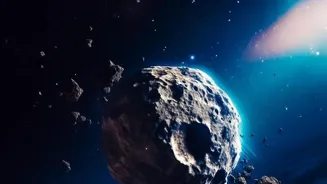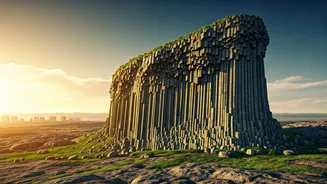Dive into the world of asteroids shaping Earth's story. Discover their secrets and our future. Read on for a cosmic journey
From the dinosaurs' dramatic exit to the very water we drink, asteroids have played
a starring role in Earth's unfolding drama.
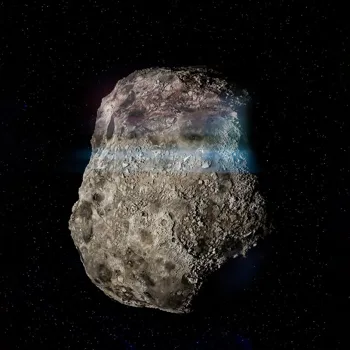
These celestial wanderers, remnants from the solar system's formation, are not just cosmic debris; they are key storytellers, whispering tales of our planet's past and holding vital clues to its future.
Scientists in India and across the globe are keenly studying these space rocks to understand their impact, literally and figuratively, on Earth's history. We are trying to decipher what these space rocks hold for us.
Asteroids may have brought water for life on Earth
Asteroids, often envisioned as menacing destroyers, have also been credited with delivering essential building blocks for life as we know it. Some scientists propose that water, crucial for life's existence, might have been brought to our planet by water-rich asteroids billions of years ago.
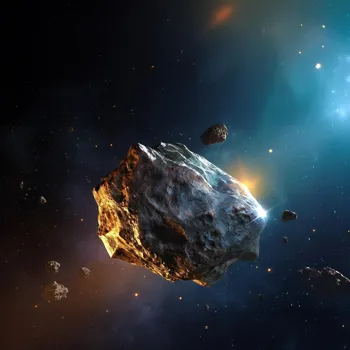
These early impacts would have been instrumental in creating the oceans and lakes. This theory is supported by the analysis of meteorites, which are asteroid fragments that have landed on Earth.
They often contain a significant amount of water and organic molecules, the very ingredients needed to start life.
Asteroid impact wiped out dinosaurs, caused mass extinction
The most famous asteroid impact, of course, is the one that wiped out the dinosaurs around 66 million years ago. A massive space rock, estimated to be about 10 kilometers wide, slammed into what is now the Yucatan Peninsula in Mexico.
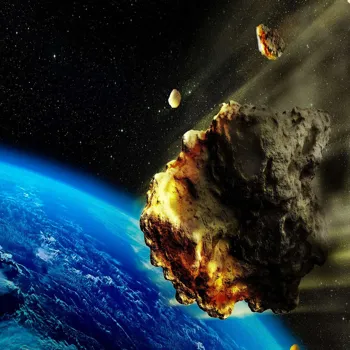
The impact triggered devastating earthquakes, tsunamis, and wildfires. Dust and debris were thrown into the atmosphere, blocking sunlight and causing a dramatic drop in global temperatures. This event caused mass extinction, wiping out a large number of living things.
One can learn lessons from this.
Impacts on early Earth potentially vital for life's origin
However, while some impacts have led to catastrophic events, others may have played a crucial role in the development of life itself. The early Earth was a harsh environment, constantly bombarded by asteroids and comets.
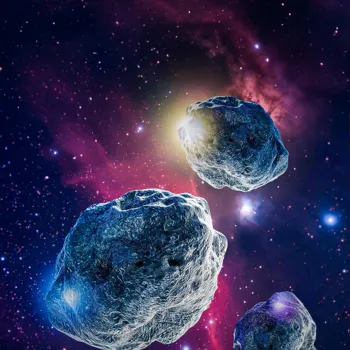
These impacts could have provided the energy and raw materials needed for the formation of complex organic molecules.
Astrophysicist studies asteroids, reveals insights into early solar system and planet formation
Dr. Anita Sharma, an astrophysicist at the Indian Institute of Astrophysics, explains, "Studying asteroids allows us to peek into the past. By analysing their composition and trajectory, we can learn much about the early solar system and the processes that shaped our planet".
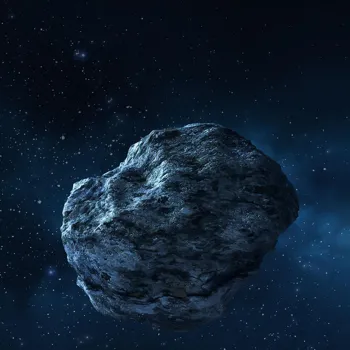
In India, there is a growing interest on how to study asteroids. From telescopes monitoring potentially hazardous asteroids, an eye is kept out. We are also actively involved in international collaborations, sharing data and know-how to enhance global efforts towards planet protection.
Scientists study asteroids using telescopes on Earth and in space, analyzing meteorites and conducting space missions for samples
The study of asteroids involves a few important things. Scientists use telescopes on Earth and in space to track asteroids and measure their size, shape, and composition. They also study meteorites, which are pieces of asteroids that have fallen to Earth.
By analysing these meteorites, scientists can learn about the materials that asteroids are made of and their age. Space missions to asteroids, such as NASA's OSIRIS-REx and Japan's Hayabusa2, have brought back samples of asteroid material to Earth for detailed study.
These samples provide scientists with new data and insights into the nature of asteroids.
scientists track near-Earth asteroids to prevent damage
The impact of asteroids isn't just a historical concern; it's a present-day challenge. While major asteroid impacts are infrequent, smaller ones happen more often. Even a relatively small asteroid could cause significant damage, potentially destroying cities or causing widespread casualties.
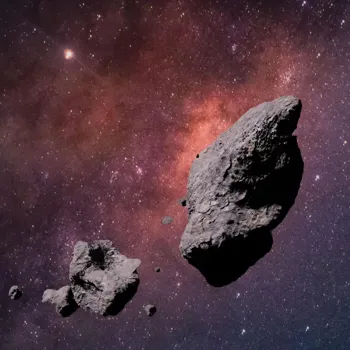
This is why scientists are actively working to identify and track near-Earth asteroids (NEAs), the space rocks whose orbits bring them close to Earth.
Researching asteroid deflection methods to protect Earth
One of the main goals is to develop methods to deflect asteroids that pose a threat to our planet.
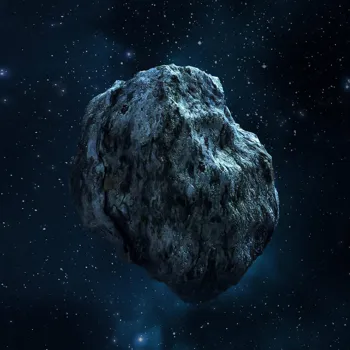
Several asteroid deflection techniques are being explored, including kinetic impact, where a spacecraft collides with an asteroid to change its trajectory, and gravity tractor, where a spacecraft uses its gravitational pull to slowly nudge an asteroid off course.
Nuclear explosion is also being researched, but it would probably not be a viable approach.
India leads in asteroid research, plans missions for data
India is now playing an important role in international efforts to learn more about these celestial objects. Indian scientists are using ground-based telescopes to track asteroids and study their characteristics.
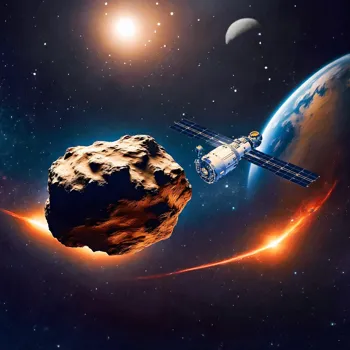
ISRO, the Indian Space Research Organisation, is also planning future missions to visit asteroids and collect samples. These missions will provide important new data and knowledge that would benefit everyone.
India's role in global asteroid defense efforts
These efforts will increase our chances to learn how to defend ourselves from potential asteroid threats. India's growing expertise in space technology and planetary science positions the country as a key player in the global effort to understand and mitigate the risks posed by asteroids.
We are now involved in sharing data and discoveries.
Asteroid study advances knowledge of celestial objects
The study of asteroids is a constantly evolving field. New missions and technologies are providing scientists with new insights into the nature and behavior of these celestial objects.
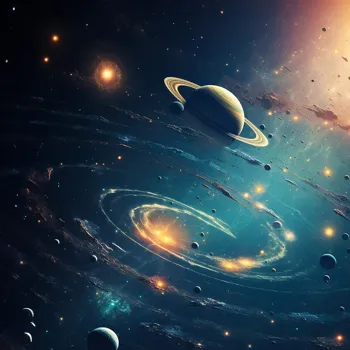
The more we learn about asteroids, the better we are prepared to understand our planet's history and to protect it from future impacts. By continuing to explore these space rocks, we can unlock the secrets of the solar system and ensure the long-term security of our planet.
Future missions explore asteroids for life origins and resources
Future missions and research activities promise to revolutionize our understanding of asteroids. These efforts will help us to address fundamental questions on the beginning of life.
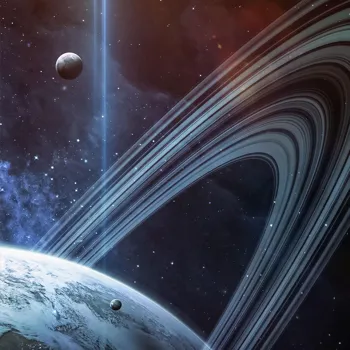
Furthermore, scientists are discovering that asteroids contain valuable resources, thus opening up future possibilities.
AI Generated Content. Glance/InMobi shall have no liability for the content